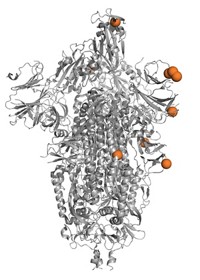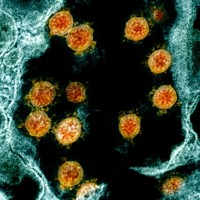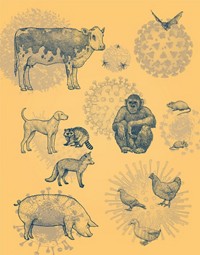Advertisement
Grab your lab coat. Let's get started
Welcome!
Welcome!
Create an account below to get 6 C&EN articles per month, receive newsletters and more - all free.
It seems this is your first time logging in online. Please enter the following information to continue.
As an ACS member you automatically get access to this site. All we need is few more details to create your reading experience.
Not you? Sign in with a different account.
Not you? Sign in with a different account.
ERROR 1
ERROR 1
ERROR 2
ERROR 2
ERROR 2
ERROR 2
ERROR 2
Password and Confirm password must match.
If you have an ACS member number, please enter it here so we can link this account to your membership. (optional)
ERROR 2
ACS values your privacy. By submitting your information, you are gaining access to C&EN and subscribing to our weekly newsletter. We use the information you provide to make your reading experience better, and we will never sell your data to third party members.
Genomics
Covid-19
Stable SARS-CoV-2 genome is good news for vaccine developers
Scientists find that there is not a lot of genetic diversity for the novel coronaviruses spreading across the globe
by Laura Howes
September 4, 2020
| A version of this story appeared in
Volume 98, Issue 34
While researchers are developing and testing vaccines for SARS-CoV-2, the coronavirus that causes COVID-19, the virus is mutating and evolving as it moves from person to person. To understand if those mutations will affect the effectiveness of vaccines, researchers at the Walter Reed Army Institute of Research and the Fred Hutchinson Cancer Research Center analyzed over 18,500 different SARS-CoV-2 genomes. Their findings should be reassuring for vaccine developers (Proc. Natl. Acad. Sci. U.S.A. 2020, DOI: 10.1073/pnas.2008281117).
Support nonprofit science journalism
C&EN has made this story and all of its coverage of the coronavirus epidemic freely available during the outbreak to keep the public informed. To support us:
Donate Join Subscribe
Not only did the team, led by Morgane Rolland and Kayvon Modjarrad, find that most mutations were rare, but it also determined that the mutations seem to be part of normal random evolution instead of being in response to selection pressure. Mutations acquired under selection pressure, such as to evade human immune responses, could lead to the appearance of new viral strains.
From this work, the researchers found that SARS-CoV-2 is spreading faster than the virus can evolve. The result is that the SARS-CoV-2 viruses circulating the globe are part of a much more homogeneous population than viruses like HIV, which is good news for vaccine developers. The research team says its findings suggest that the vaccines currently being developed should protect against all the SARS-CoV-2 viruses that currently exist, even though those vaccines were developed based on a viral sequence that was published early in the pandemic.





Join the conversation
Contact the reporter
Submit a Letter to the Editor for publication
Engage with us on Twitter